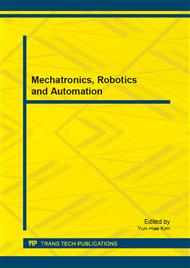p.1757
p.1763
p.1768
p.1776
p.1780
p.1784
p.1788
p.1796
p.1800
Automatic Scoring Algorithm of Chinese Subjective Questions Based on Domain Ontology and Sentence Framework
Abstract:
This paper constructs domain ontology for Data Structure Course and standard (student) answer sentence framework, then proposes a new approach to automatic marking Chinese subjective questions based on them. This method deals with the standard (student) answer in word segmentation, part-of-speech tagging, pronouns digestion, extracting framework, calculating word similarity. Compared with the traditional ones, this means allows the computer to understand the semantic information as much as possible, keeps the semantic relations between standard answer and the students, improves scoring accuracy.
Info:
Periodical:
Pages:
1780-1783
Citation:
Online since:
August 2013
Authors:
Price:
Сopyright:
© 2013 Trans Tech Publications Ltd. All Rights Reserved
Share:
Citation:


